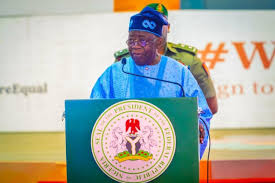The Niger state House of Assembly has sacked three principal officers in a sudden upheaval which took the speaker of the House, Barrister Abdullahi Bawa Wuse, unaware.
The impeached leaders include the Majority Leader who is the member representing Kontagora constituency, Honorable Saleh Ibrahim, the deputy majority leader, member representing Gurara constituency, Honorable Binta Mamman and the Chief Whip who is the member representing Lapai constituency, Honorable Idris Musa Vatsa.
In a move to save the situation, the speaker made last moment desperate efforts to stop the impeachment bid but failed amidst rowdy arguments.
The impeachment took place Thursday after members over- ruled the speaker, citing provisions of Standing Order of the House which empowers any member to move motion of urgent public importance without submitting it in writing to the speaker before plenary.
It was learnt that drama began when the member representing Edati constituency, Honorable Salihu Tama stood up to present a motion under a matter of urgent public importance but was overruled by the speaker.
While trying to stop the impeachment motion, the speaker said, “I gave him the opportunity to speak. The understanding is that he said he had a motion and the motion is being typed and it is almost complete.
“I again asked him if it is ready, and he said that the motion is for flooding in Edati local government area and that it is almost ready and that was why I said I haven’t given him the basis to speak. I overruled him because he didn’t give me the motion before the sitting. And that is my stand on this.”
The speaker’s response was said to have elicited sporadic reaction from members who argued that it has never been the practice of the assembly and referring the speaker to House rules and standing order.
A member representing Borgu Constituency, Honorable Mohammed Abba Bala said, “If a matter of public importance is not put to writing, that won’t stop it from being presented and argued that this has always been the practice adding that, “your overruling on this matter cannot stand.”




